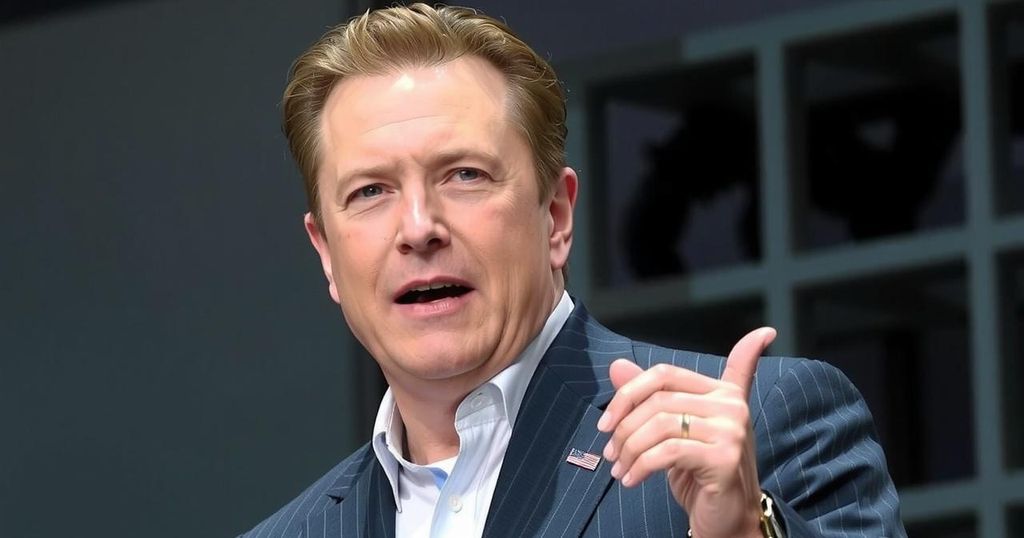German Government Accuses Elon Musk of Interfering in Parliamentary Elections

German officials accuse Elon Musk of meddling in elections by endorsing the far-right AfD party. Musk claims the AfD is key to fiscal responsibility for Germany, leading to significant backlash from politicians who regard it as extremism. His comments come ahead of snap elections, raising concerns about foreign influence over domestic politics.
The German government has accused Elon Musk of attempting to influence the upcoming parliamentary elections by endorsing the far-right Alternative for Germany (AfD) party. This accusation follows Musk’s recent social media activity and an op-ed published in a prominent German newspaper, wherein he characterized the AfD as a potential solution for the nation’s economic troubles. His remarks have incited backlash from both U.S. and German political figures who regard Musk’s comments as scandalous, particularly given the AfD’s controversial standing.
Musk has claimed that the AfD is the only party capable of restoring fiscal responsibility to Germany, commendably advocating for its regulatory stance while dismissing accusations of extremism linked to the party. Several high-ranking German officials, including spokesperson Christiane Hoffmann, have condemned Musk’s actions, asserting that they aim to undermine the electoral process. Hoffmann remarked on the situation, saying, “It is indeed the case that Elon Musk is trying to influence the federal election.” Among the criticism, Musk has been labeled a provocateur, with German Health Minister Karl Lauterbach describing his engagement as “undignified and highly problematic.”
As the parliamentary elections draw near, Musk’s involvement has raised concerns across the political spectrum in Germany. All major political parties have distanced themselves from the AfD, which has been officially categorized as an extremist group. However, the AfD has rebuffed this classification, and Musk continues to defend the party as a viable alternative to the current government, which he asserts has failed to address significant national issues.
Elon Musk’s engagement in German politics has surfaced just weeks prior to a critical election period in Germany, where the Alternative for Germany (AfD) party has been a subject of contention. The AfD, often accused of harboring extremist views, has struggled for legitimacy amidst widespread rejection from other mainstream political factions. Musk’s recent proclamations, likening the AfD’s leadership to a progressive stance, signify a controversial intersection of international business influence and national political discourse as Germany prepares for snap parliamentary elections. This incident underscores ongoing tensions regarding populism in Western democracies and the responsibilities of influential individuals in shaping political narratives.
In summary, Elon Musk’s recent actions have elicited significant critique from German officials, who assert that his endorsements of the AfD party could skew the forthcoming parliamentary elections. The controversy highlights the intersection of global business interests and local politics. While Musk positions the AfD as a fresh solution for Germany’s economic challenges, the prevailing political sentiment among major parties remains decidedly adverse to any collaboration with the AfD, marking a critical moment for German democracy as it contemplates the implications of external influence on its electoral integrity.
Original Source: www.foxnews.com







